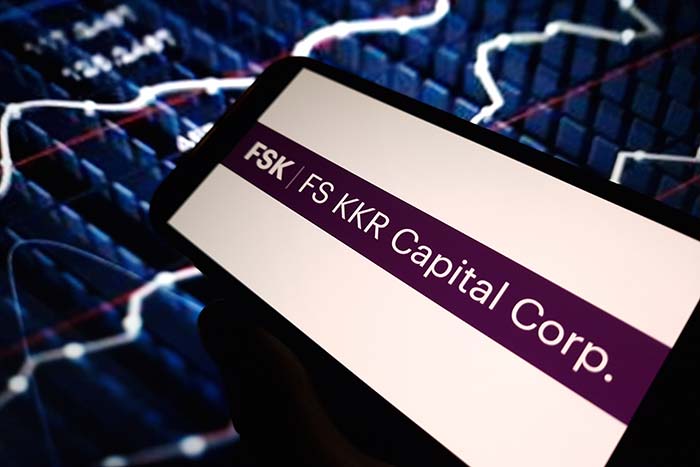FS KKR Capital (NYSE: FSK) is a business development company that lends money to privately owned businesses that otherwise couldn’t get a loan from a bank.
FS KKR’s portfolio is worth $14.1 billion and contains loans to 208 companies, which have a median EBITDA, or earnings before interest, taxes, depreciation, and amortization, of $124 million.
Software is the top sector in the portfolio, accounting for nearly 16% of its holdings, followed by capital goods at almost 14% and commercial and professional services at just under 13%.
But what’s really exciting to investors is the fact that the portfolio yields 12% and the stock yields a whopping 14.5%.
Can investors expect to keep earning such a high yield going forward?
Because FS KKR is a lender, we look at a metric called net interest income to determine whether it can afford to pay its dividend. Net interest income is the amount of income a company generates from its loans after paying its bills.
FS KKR has done an excellent job of growing its net interest income over the past few years.
In 2023, FS KKR paid shareholders $823 million in dividends, or 62% of its net interest income. This year, even though the total dividend payout is forecast to increase to $964 million, the payout ratio is projected to dip to 59% because net interest income is expected to rise by 23%.
So the company can easily afford its dividend.
FS KKR’s current regular quarterly dividend is $0.64 per share, which comes out to a 13.1% yield. When we include the special dividend, which the company typically pays several times each year, the yield climbs to 14.5%.
However, FS KKR has cut its regular dividend several times over the past decade.
We’ve seen a lot of companies like this in Safety Net lately: high yielders that are generating plenty of cash flow to pay their dividends but have track records of cutting their payouts when necessary. FS KKR Capital is in that exact situation.
I don’t believe a dividend cut is imminent. But if net interest income starts to slip, be aware that management is not afraid to slash the payout to shareholders.
Dividend Safety Rating: C

What stock’s dividend safety would you like me to analyze next? Leave the ticker in the comments section.
You can also take a look to see whether we’ve written about your favorite stock recently. Just click on the word “Search” at the top right part of the Wealthy Retirement homepage, type in the company name and hit “Enter.”
Also, keep in mind that Safety Net can analyze only individual stocks, not exchange-traded funds, mutual funds or closed-end funds.


